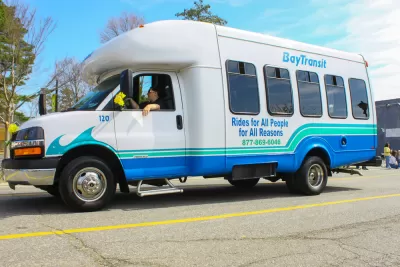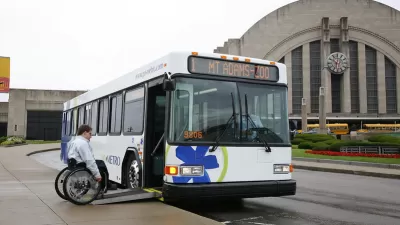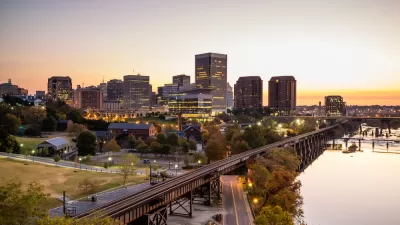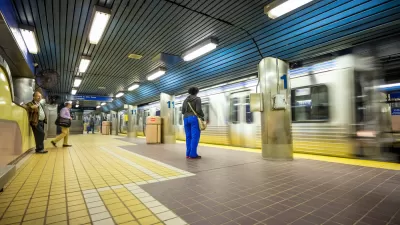State funding approved in early 2020 and Covid-related service changes are allowing multiple localities to consider a drastic move for public transit: permanent, fare-free bus service.

Wyatt Gordon reports from Virginia:
When the General Assembly created the Transit Rider Incentive Program (TRIP) as part of Gov. Ralph Northam’s 2020 transportation omnibus, the lion’s share of the funding was allocated to support new regional bus routes. With COVID’s cancellation of much commuter service across the commonwealth, those dollars are now being dedicated to TRIP’s secondary goal: fare free transit pilot projects.
In recent months, Virginia cities like Lynchburg, Roanoke, Alexandria, Richmond, Charlottesville, and Fairfax County have expressed support for fare-free transit service, and Gordon writes to speculate on the potential of permanent elimination of fares on bus systems in the state.
"Nearly every transit system in the commonwealth eliminated fares last year as a public health measure in response to COVID, but until recently none had announced intentions to make that move to protect riders and operators more permanent," according to Gordon.
One characteristic of transit in Virginia that Gordon notes as especially remarkable is the importance of bus transit in rural locations in the state. The TRIP bill will support fare-free programs in both urban and rural areas, according to Gordon. Gordon surveys the state and finds support for fare-free programs in cities on both ends of the urban and rural spectrum.
FULL STORY: Should Virginia bus systems go fare free forever?

Study: Maui’s Plan to Convert Vacation Rentals to Long-Term Housing Could Cause Nearly $1 Billion Economic Loss
The plan would reduce visitor accommodation by 25,% resulting in 1,900 jobs lost.

North Texas Transit Leaders Tout Benefits of TOD for Growing Region
At a summit focused on transit-oriented development, policymakers discussed how North Texas’ expanded light rail system can serve as a tool for economic growth.

Using Old Oil and Gas Wells for Green Energy Storage
Penn State researchers have found that repurposing abandoned oil and gas wells for geothermal-assisted compressed-air energy storage can boost efficiency, reduce environmental risks, and support clean energy and job transitions.

From Blight to Benefit: Early Results From California’s Equitable Cleanup Program
The Equitable Community Revitalization Grant (ECRG) program is reshaping brownfield redevelopment by prioritizing projects in low-income and environmental justice communities, emphasizing equity, transparency, and community benefits.

Planting Relief: Tackling Las Vegas Heat One Tree at a Time
Nevada Plants, a Las Vegas-based nonprofit, is combating the city’s extreme urban heat by giving away trees to residents in underserved neighborhoods, promoting shade, sustainability, and community health.

How Madison’s Tree Planting Efforts Are Growing a Healthier Community
Madison’s annual tree planting initiative is enhancing environmental resilience, public health, and community livability by adding 1,400 carefully selected trees citywide, with strong community and institutional support for urban forestry.
Urban Design for Planners 1: Software Tools
This six-course series explores essential urban design concepts using open source software and equips planners with the tools they need to participate fully in the urban design process.
Planning for Universal Design
Learn the tools for implementing Universal Design in planning regulations.
Ascent Environmental
Borough of Carlisle
Institute for Housing and Urban Development Studies (IHS)
City of Grandview
Harvard GSD Executive Education
Toledo-Lucas County Plan Commissions
Salt Lake City
NYU Wagner Graduate School of Public Service





























